Hannah Recknor
WikiVideo: Article Generation from Multiple Videos
Apr 01, 2025Abstract:We present the challenging task of automatically creating a high-level Wikipedia-style article that aggregates information from multiple diverse videos about real-world events, such as natural disasters or political elections. Videos are intuitive sources for retrieval-augmented generation (RAG), but most contemporary RAG workflows focus heavily on text and existing methods for video-based summarization focus on low-level scene understanding rather than high-level event semantics. To close this gap, we introduce WikiVideo, a benchmark consisting of expert-written articles and densely annotated videos that provide evidence for articles' claims, facilitating the integration of video into RAG pipelines and enabling the creation of in-depth content that is grounded in multimodal sources. We further propose Collaborative Article Generation (CAG), a novel interactive method for article creation from multiple videos. CAG leverages an iterative interaction between an r1-style reasoning model and a VideoLLM to draw higher level inferences about the target event than is possible with VideoLLMs alone, which fixate on low-level visual features. We benchmark state-of-the-art VideoLLMs and CAG in both oracle retrieval and RAG settings and find that CAG consistently outperforms alternative methods, while suggesting intriguing avenues for future work.
CLAIMCHECK: How Grounded are LLM Critiques of Scientific Papers?
Mar 27, 2025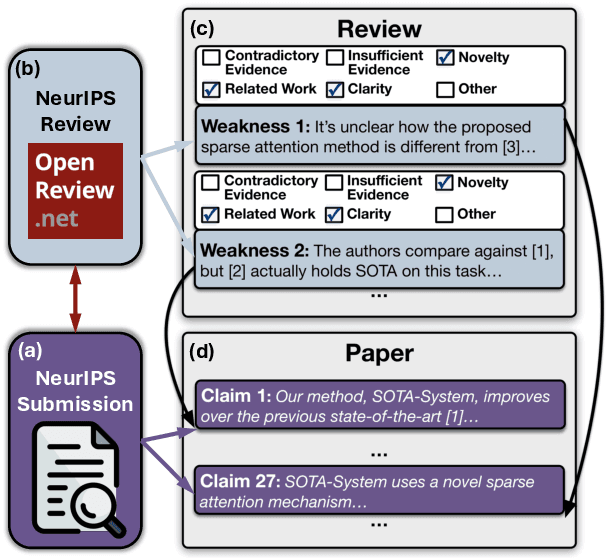

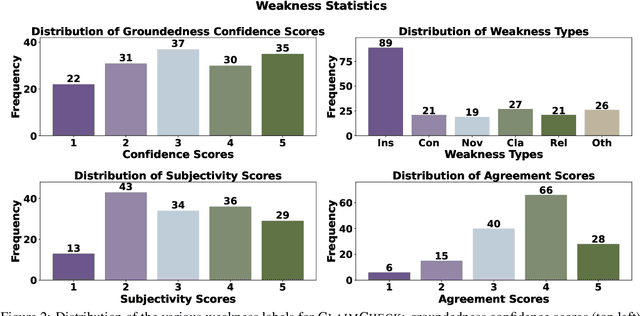
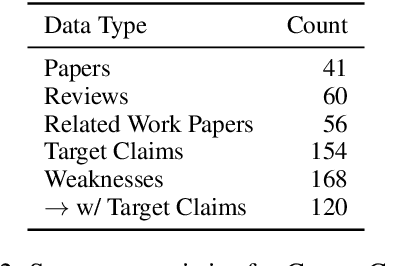
Abstract:A core part of scientific peer review involves providing expert critiques that directly assess the scientific claims a paper makes. While it is now possible to automatically generate plausible (if generic) reviews, ensuring that these reviews are sound and grounded in the papers' claims remains challenging. To facilitate LLM benchmarking on these challenges, we introduce CLAIMCHECK, an annotated dataset of NeurIPS 2023 and 2024 submissions and reviews mined from OpenReview. CLAIMCHECK is richly annotated by ML experts for weakness statements in the reviews and the paper claims that they dispute, as well as fine-grained labels of the validity, objectivity, and type of the identified weaknesses. We benchmark several LLMs on three claim-centric tasks supported by CLAIMCHECK, requiring models to (1) associate weaknesses with the claims they dispute, (2) predict fine-grained labels for weaknesses and rewrite the weaknesses to enhance their specificity, and (3) verify a paper's claims with grounded reasoning. Our experiments reveal that cutting-edge LLMs, while capable of predicting weakness labels in (2), continue to underperform relative to human experts on all other tasks.
MultiVENT 2.0: A Massive Multilingual Benchmark for Event-Centric Video Retrieval
Oct 15, 2024Abstract:Efficiently retrieving and synthesizing information from large-scale multimodal collections has become a critical challenge. However, existing video retrieval datasets suffer from scope limitations, primarily focusing on matching descriptive but vague queries with small collections of professionally edited, English-centric videos. To address this gap, we introduce $\textbf{MultiVENT 2.0}$, a large-scale, multilingual event-centric video retrieval benchmark featuring a collection of more than 218,000 news videos and 3,906 queries targeting specific world events. These queries specifically target information found in the visual content, audio, embedded text, and text metadata of the videos, requiring systems leverage all these sources to succeed at the task. Preliminary results show that state-of-the-art vision-language models struggle significantly with this task, and while alternative approaches show promise, they are still insufficient to adequately address this problem. These findings underscore the need for more robust multimodal retrieval systems, as effective video retrieval is a crucial step towards multimodal content understanding and generation tasks.
Grounding Partially-Defined Events in Multimodal Data
Oct 07, 2024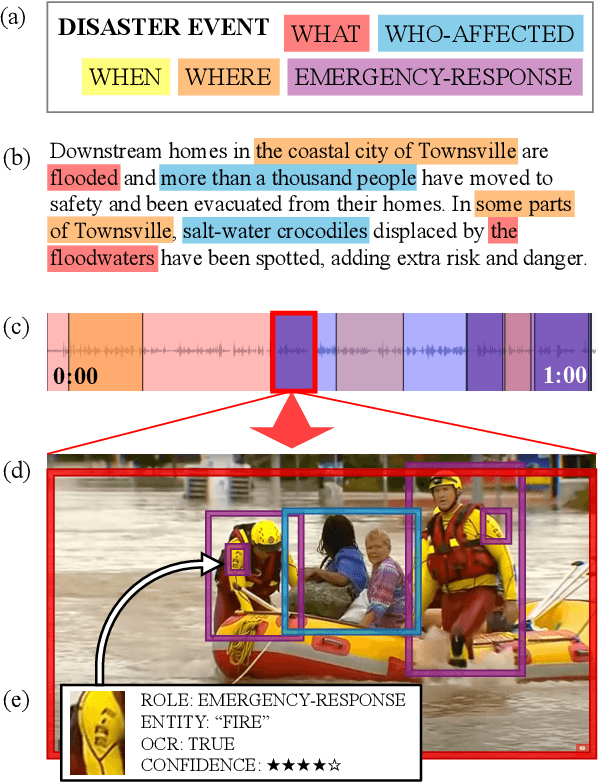
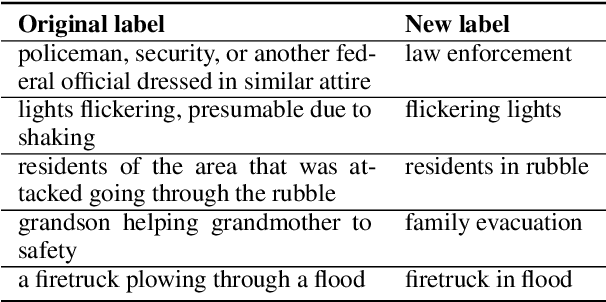

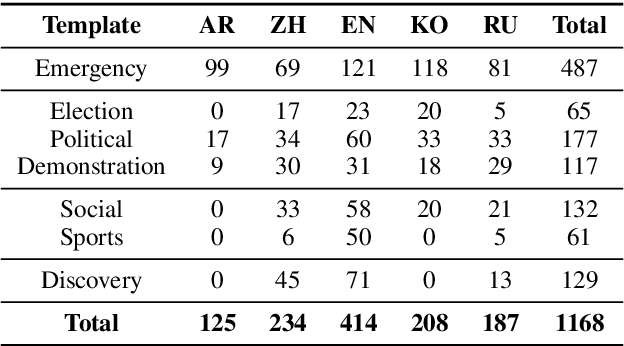
Abstract:How are we able to learn about complex current events just from short snippets of video? While natural language enables straightforward ways to represent under-specified, partially observable events, visual data does not facilitate analogous methods and, consequently, introduces unique challenges in event understanding. With the growing prevalence of vision-capable AI agents, these systems must be able to model events from collections of unstructured video data. To tackle robust event modeling in multimodal settings, we introduce a multimodal formulation for partially-defined events and cast the extraction of these events as a three-stage span retrieval task. We propose a corresponding benchmark for this task, MultiVENT-G, that consists of 14.5 hours of densely annotated current event videos and 1,168 text documents, containing 22.8K labeled event-centric entities. We propose a collection of LLM-driven approaches to the task of multimodal event analysis, and evaluate them on MultiVENT-G. Results illustrate the challenges that abstract event understanding poses and demonstrates promise in event-centric video-language systems.
 Add to Chrome
Add to Chrome Add to Firefox
Add to Firefox Add to Edge
Add to Edge